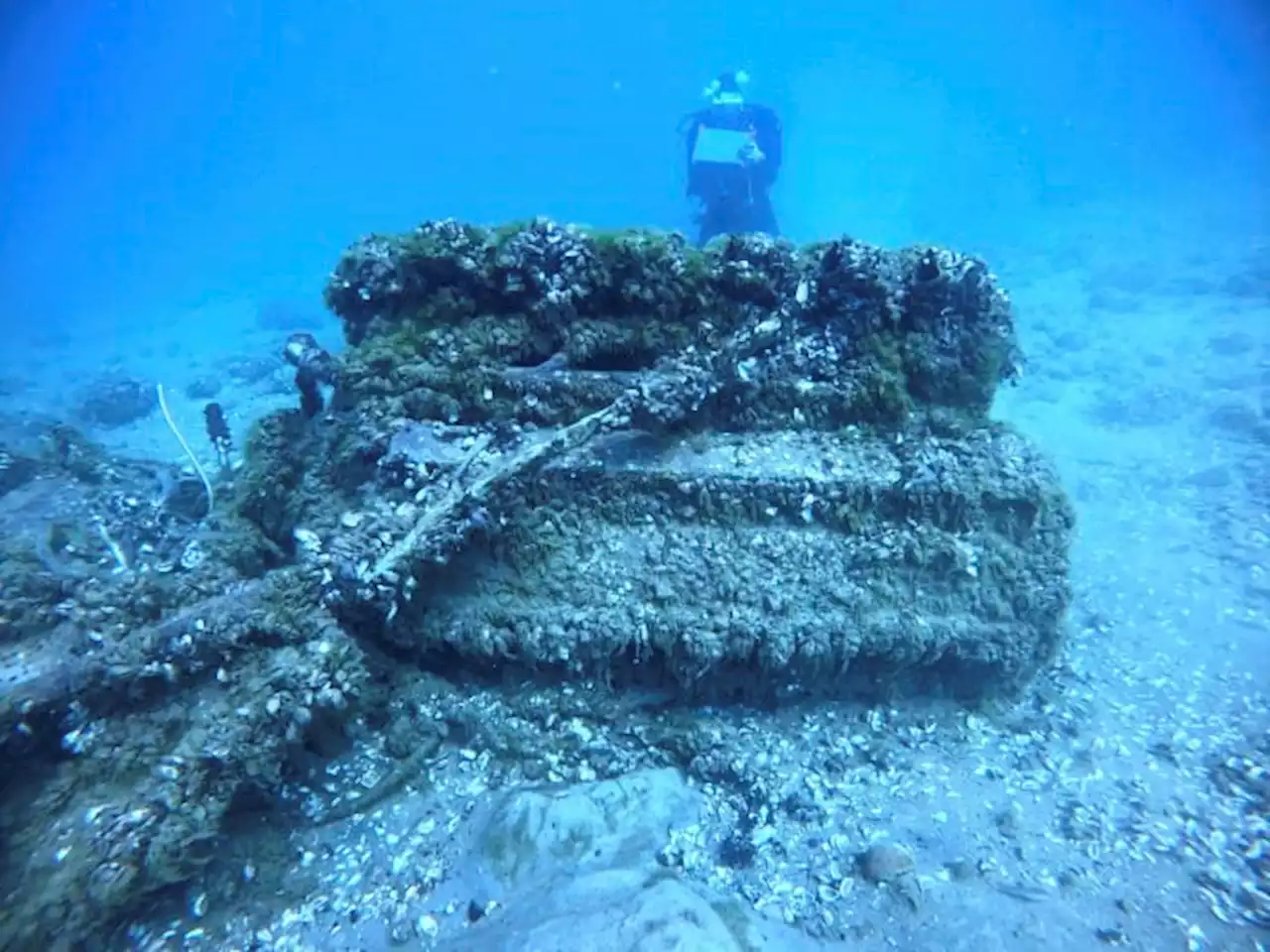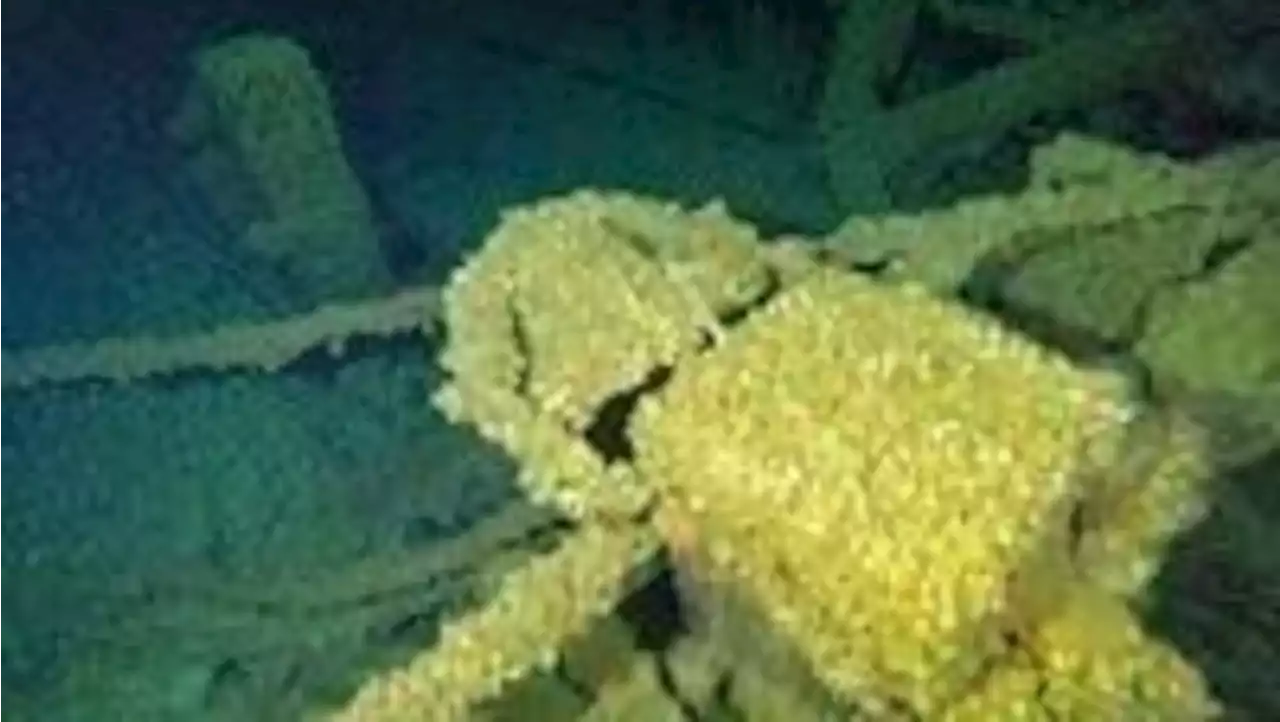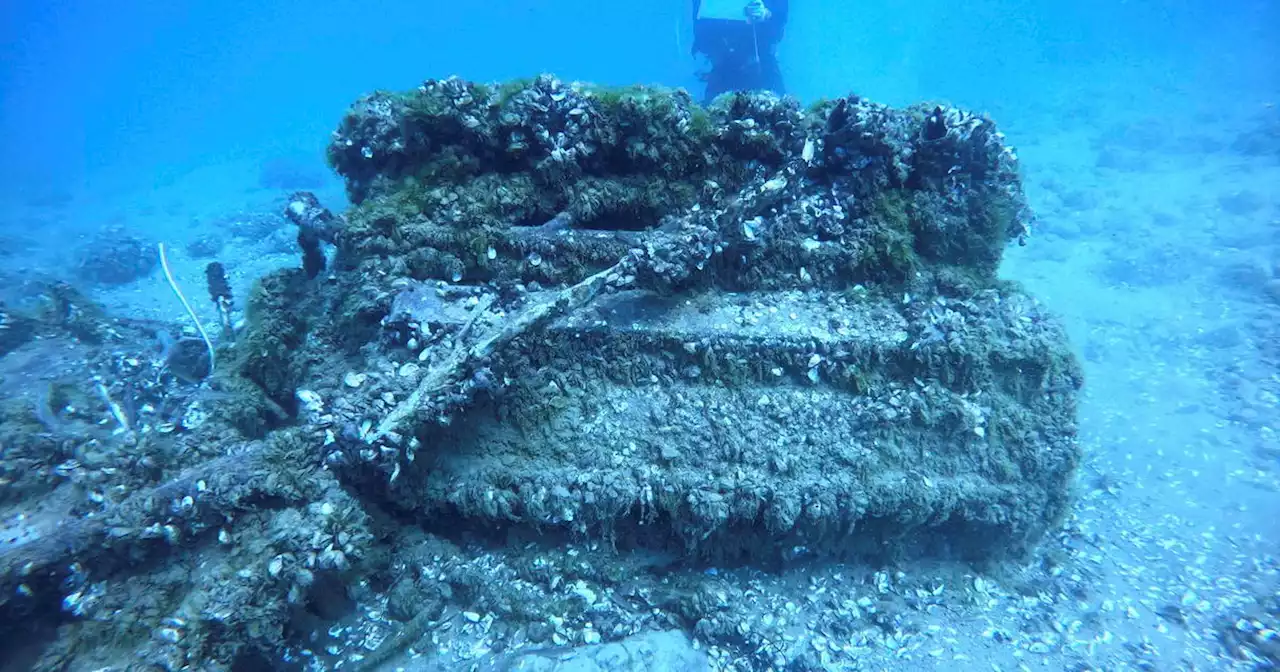Quagga mussels are finger-sized mollusks native to Russia and Ukraine and discovered in 1989 in the Great Lakes,
This Aug. 17, 2021 photo shows Quagga mussels cover the engine of a Bell P-39 Airacobra military plane in Lake Huron, Mich., as maritime archaeologist Carrie Sowden, rear, documents the site. Archaeologists are scrambling to locate Great Lakes shipwrecks and downed planes before quagga mussels destroy them. MADISON, Wis. — The Great Lakes’ frigid fresh water used to keep shipwrecks so well preserved that divers could see dishes in the cupboards.
The creatures have covered virtually every shipwreck and downed plane in all of the lakes except Lake Superior, archaeologists say. The mussels burrow into wooden vessels, building upon themselves in layers so thick they will eventually crush walls and decks. They also produce acid that can corrode steel and iron ships. No one has found a viable way to stop them.
Unlike zebra mussels, quaggas are hungrier, hardier and more tolerant of colder temperatures. They devour plankton and other suspended nutrients, eliminating the base level of food chains. They consume so many nutrients at such high rates they can render portions of the murky Great Lakes as clear as tropical seas. And while zebra mussels prefer hard surfaces, quaggas can attach to soft surfaces at greater depths, enabling them to colonize even the lakes’ sandy bottoms.
Lusardi, Michigan’s state maritime archaeologist, ticked off a long list of shipwreck sites in the lower Great Lakes consumed by quaggas. The first photos of the site, taken by a robot vehicle, showed the ship was in unusually good shape, with intact rigging and dishes still in cabins. But the site was “fully carpeted” with quagga mussels, Baillod said.
Canada Latest News, Canada Headlines
Similar News:You can also read news stories similar to this one that we have collected from other news sources.
 Historians race to find Great Lakes shipwrecks before quagga mussels destroy the sitesHistorians are racing to locate Great Lakes shipwrecks before a seemingly unstoppable invasive mussel destroys them and erases part of the region's heritage.
Historians race to find Great Lakes shipwrecks before quagga mussels destroy the sitesHistorians are racing to locate Great Lakes shipwrecks before a seemingly unstoppable invasive mussel destroys them and erases part of the region's heritage.
Read more »
 Historians race to find Great Lakes shipwrecks before quagga mussels destroy the sitesHistorians are racing to locate Great Lakes shipwrecks before a seemingly unstoppable invasive mussel destroys them and erases part of the region's heritage.
Historians race to find Great Lakes shipwrecks before quagga mussels destroy the sitesHistorians are racing to locate Great Lakes shipwrecks before a seemingly unstoppable invasive mussel destroys them and erases part of the region's heritage.
Read more »
 Historians race to find Great Lakes shipwrecks before quagga mussels destroy the sitesHistorians are racing to locate Great Lakes shipwrecks before a seemingly unstoppable invasive mussel destroys them and erases part of the region's heritage.
Historians race to find Great Lakes shipwrecks before quagga mussels destroy the sitesHistorians are racing to locate Great Lakes shipwrecks before a seemingly unstoppable invasive mussel destroys them and erases part of the region's heritage.
Read more »
 Historians race to find Great Lakes shipwrecks before quagga mussels destroy the sitesHistorians are racing to locate Great Lakes shipwrecks before a seemingly unstoppable invasive mussel destroys them and erases part of the region's heritage
Historians race to find Great Lakes shipwrecks before quagga mussels destroy the sitesHistorians are racing to locate Great Lakes shipwrecks before a seemingly unstoppable invasive mussel destroys them and erases part of the region's heritage
Read more »
 Historians race against time — and invasive species — to study Great Lakes shipwrecksHistorians are racing to locate Great Lakes shipwrecks before a seemingly unstoppable invasive mussel destroys them and erases part of the region's heritage.
Historians race against time — and invasive species — to study Great Lakes shipwrecksHistorians are racing to locate Great Lakes shipwrecks before a seemingly unstoppable invasive mussel destroys them and erases part of the region's heritage.
Read more »
